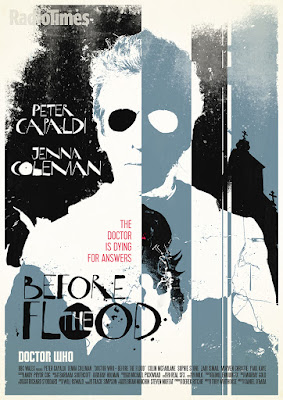However, I gave it another spin a night later with a brighter outlook, in the company of my wife, and the entire affair felt a delightfully fun romp with some lovely emotional resonance in the third act. It's Christmas. It's Doctor Who. What more do you need? As one of my oldest and dearest Whovian pals Denise recently declared, after experiencing the devastating three-part season nine finale, "We need a light episode."
Still, it wouldn't hurt to have had some more time in between those emotionally turbulent installments and this caper. Those events are fresh and crisp in our memories, but the Doctor is able to move on from Clara's departure with far greater ease than we can. The key, I think, to appreciating "The Husbands of River Song" is to accept that it's less an episode of Doctor Who, and more a one-time spin-off starring River, which happens to include the Doctor.
Read the rest of this recap by clicking here and visiting Vulture.
Artwork courtesy Design by Stuart Manning.
Read the rest of this recap by clicking here and visiting Vulture.
Artwork courtesy Design by Stuart Manning.













